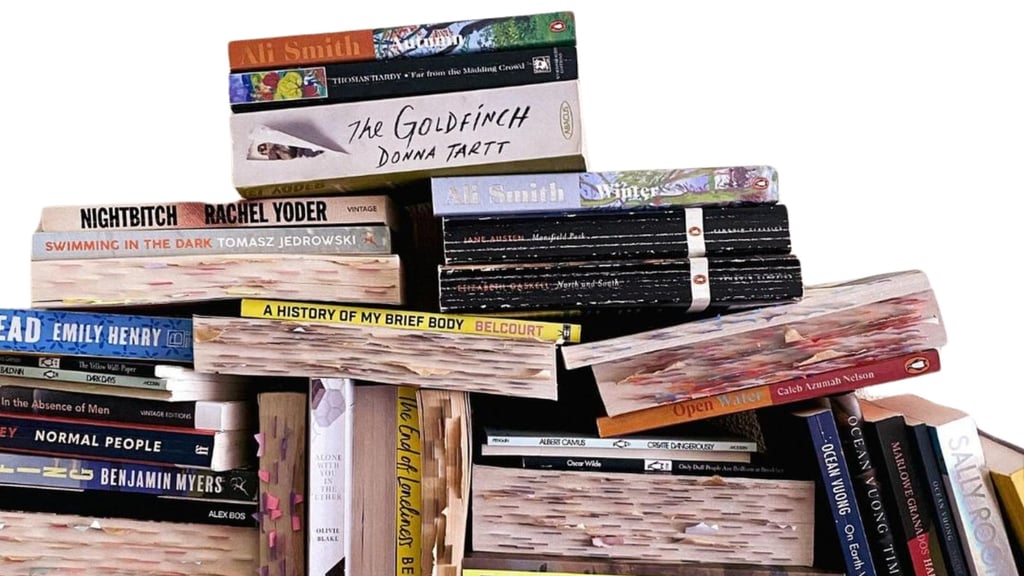Do Book Boyfriends Really Exist?
LIFESTYLE
Victoria Guillou
10/10/2024


© Colonne / @ananascanread
Let’s be honest: we’ve all been there, curled up with a blanket, a cup of tea (or, let’s face it, a massive glass of wine), and our latest literary heartthrob. He’s perfect—mysterious but vulnerable, tough yet secretly soft, and he probably smells like leather, cedarwood, and just a hint of rain. Sigh. Before you know it, you’re comparing him to, well… everyone. Suddenly, the cute guy at the coffee shop who did remember your order last week seems a little less dreamy. I mean, can he even ride a horse across the moors in a storm while reciting poetry? No? Then, next!
But let’s dive deeper into this “book boyfriend” phenomenon, shall we? Do they really exist, and are they the reason we’re all still single? Because, ladies, I hate to break it to you, but Mr. Darcy is not walking through that door. (Unless you’ve time-traveled to the 1800s. In which case, can I come?)
Who Exactly Are These "Book Boyfriends" Anyway?
You know the type. They’re the Mr. Darcys, the Jamie Frasers, the Rhysands of the world (bless your high-fantasy soul if you know who that is). They’re impossibly charming, brooding, and have this whole “I’m damaged but only you can fix me” vibe going on. They say just the right thing at the right time, and of course, they have abs so chiseled they might as well be a Michelangelo sculpture. Oh, and let’s not forget their emotional intelligence—because who doesn’t love a man who can both build a fire and talk about his feelings?
The Allure of Fictional Perfection
The thing about book boyfriends is they’re written to be perfect… in the most maddening, swoon-worthy way possible. Every flaw is secretly an asset. He’s cold and distant? Oh, no, honey, that’s just because he’s protecting you from the danger of loving him too much. He’s grumpy? Obviously, it’s because the world has wronged him, and he just needs your smile to bring the sunshine back. Real life? Well, real life is a little messier.
Let’s not even talk about the fact that most of these guys would be absolute red flags IRL. We’d tell our besties to run for the hills if someone was as emotionally unavailable as Edward Cullen. Seriously, glittery vampires who stalk you while you sleep? No thank you.
Is This Why We’re Single?
Here’s the thing: while we’re busy comparing every Bumble match to the likes of Kaz Brekker (he’s fictional, friends—no one’s going to be that clever and dangerous), we might be missing out on real connections. You know, with people who don’t need a redemption arc after an assassin phase or who don’t brood silently in a castle for ten years, waiting for someone to break their curse.
Real people, shockingly, have flaws that can’t be romanticized into tragic backstories. They leave their socks on the floor, get nervous when texting, and probably won’t engage in a high-stakes duel for your honor. They might, however, offer to split the last slice of pizza and binge-watch Only Murders in the Building with you. And honestly, isn’t that kind of love worth exploring?
The Truth? We Love the Fantasy, But…
Book boyfriends are great. They give us a break from the realities of dating apps and awkward first dates. But we have to remember that, no matter how many times we fall in love with the brooding, mysterious guy on the page, it’s not fair to expect real people to measure up to someone with a whole team of writers crafting their every move.
At the end of the day, maybe it’s not that we’re single because of book boyfriends. It’s that we’re single because, after spending hours swooning over these fictional heroes, we forget that real love—the kind with imperfect, messy, wonderful people—isn’t always about grand gestures. Sometimes, it’s just about someone who shows up, consistently, with coffee and no emotional baggage involving cursed necklaces or ancient feuds.
So, keep dreaming about those book boyfriends, but maybe cut the guy from Hinge a little slack. He might not have Rhysand’s wingspan, but he does reply with actual full sentences—and that’s a win in itself.

